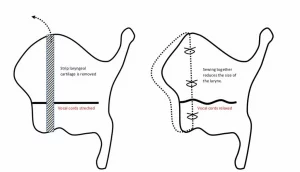You can protect your voice as a singer or performer by maintaining hydration, warming up and cooling down your voice, and avoiding strain. Proper technique, rest, and awareness of early signs of fatigue are key to preventing vocal injury and ensuring longevity in your career.
| Protective Habit | Why It Matters | Example Practice |
|---|---|---|
| Warm-ups & Cool-downs | Prepares vocal cords for use | Gentle humming or lip trills before singing |
| Hydration | Keeps vocal folds lubricated | Sip water regularly, avoid excess caffeine |
| Rest & Recovery | Allows tissue repair | Silent periods after intense use |
| Healthy Lifestyle | Supports breath and stamina | Avoid smoking, manage reflux and allergies |
Why Are Performers at Higher Risk of Vocal Injury?
Performers use their voices more intensively than most people. Rehearsals, live shows, and frequent speaking all put stress on the vocal folds. Research shows that around 46% of professional singers experience at least one episode of vocal strain or hoarseness each year, often due to overuse or lack of recovery time.
For Voice Care For Performing Artists, Contact Nick Hamilton today on 020 7034 6053 or Book a Consultation
What Are Early Warning Signs of Voice Strain?
Early symptoms of vocal strain include hoarseness, breathiness, a reduced singing range, or a feeling of tightness or discomfort in the throat. Some performers also notice increased effort when producing sound or a loss of clarity and projection. These signs indicate that the vocal cords are becoming irritated or inflamed from overuse.
Ignoring these early warnings can lead to swelling, the formation of nodules or polyps, and long-term changes to vocal quality that may require extended therapy or surgical intervention. Recognising and addressing these symptoms promptly, through rest, hydration, and professional assessment, is the best way to prevent more serious injury and preserve vocal strength over time.
How Does Voice Therapy Help Performers?
Voice therapy teaches efficient breath control, posture, and resonance to reduce unnecessary tension. Performers often find therapy improves both vocal power and endurance. A therapist can also identify bad habits, such as pushing for volume or constricting the throat during high notes.
What Lifestyle Habits Support a Strong Voice?
Good vocal care extends beyond the studio or stage.
- Regular exercise
- Managing allergies or reflux
- Getting enough sleep
All these support healthy vocal function. Yous should also avoid shouting in loud environments and use microphones to prevent voice overuse.
When Should a Performer See a Specialist?
If you notice persistent hoarseness, vocal fatigue, or pain, it’s important to seek an assessment. A voice specialist can examine your vocal cords using laryngoscopy and create a tailored recovery or maintenance plan.
To book a consultation with Mr Nick Hamilton at The London Clinic or One Welbeck, call 020 7034 6053 to discuss any vocal health concerns.




